AirPods 2 vs. AirPods: Should you upgrade to the later model of Apple's classic earbuds?
A lot of changes are inside.
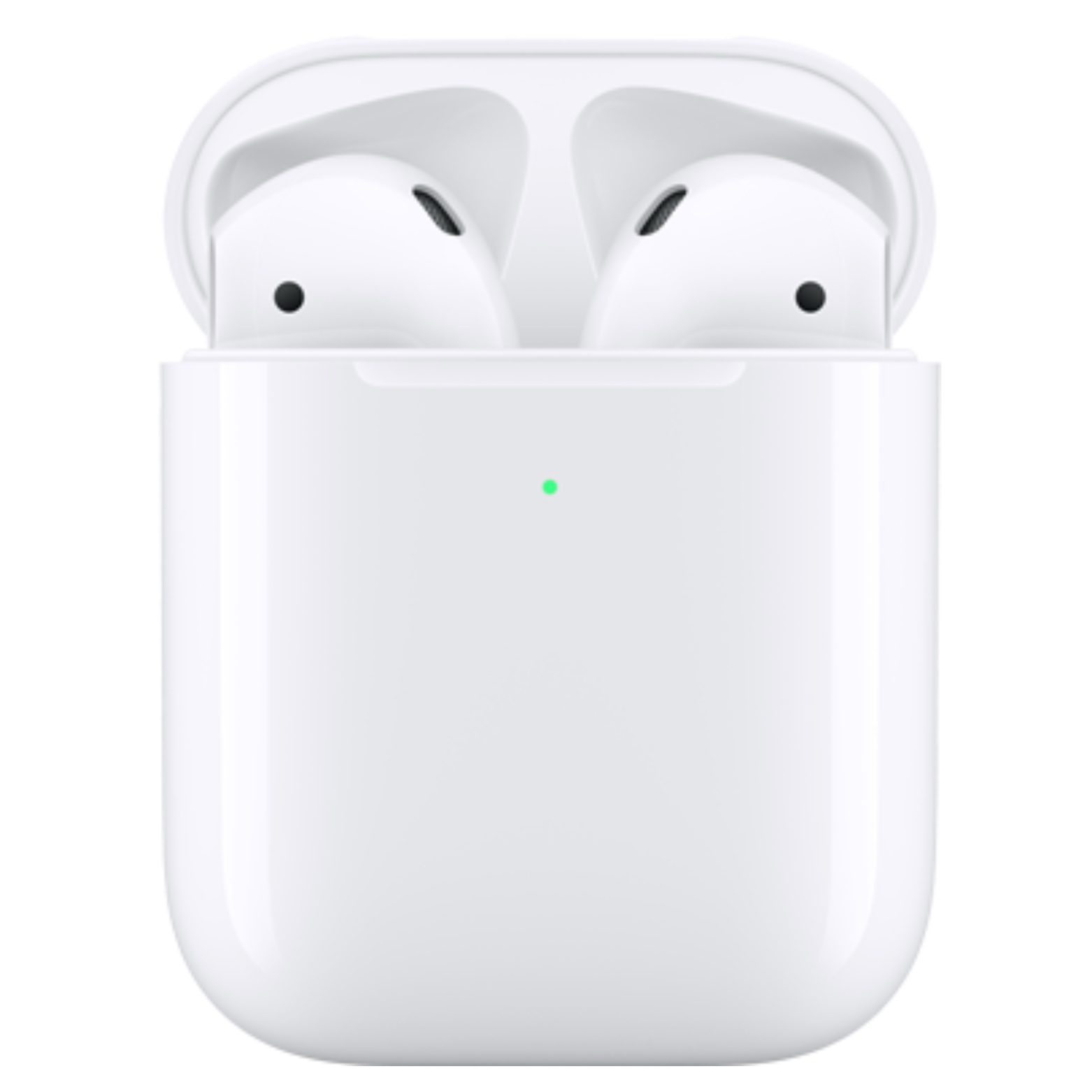
A classic fit
Apple's second-generation AirPods are a slight improvement over the first-gen with better audio and voice quality, longer talk time, and support for voice-activated Siri.
For
- Voice-activated and double-tap to Siri
- Better audio and voice
- 2X faster switching between devices
- Additional hour of talk time
- 30% lower latency
Against
- Same ear pod design
- Doesn't come in new colors
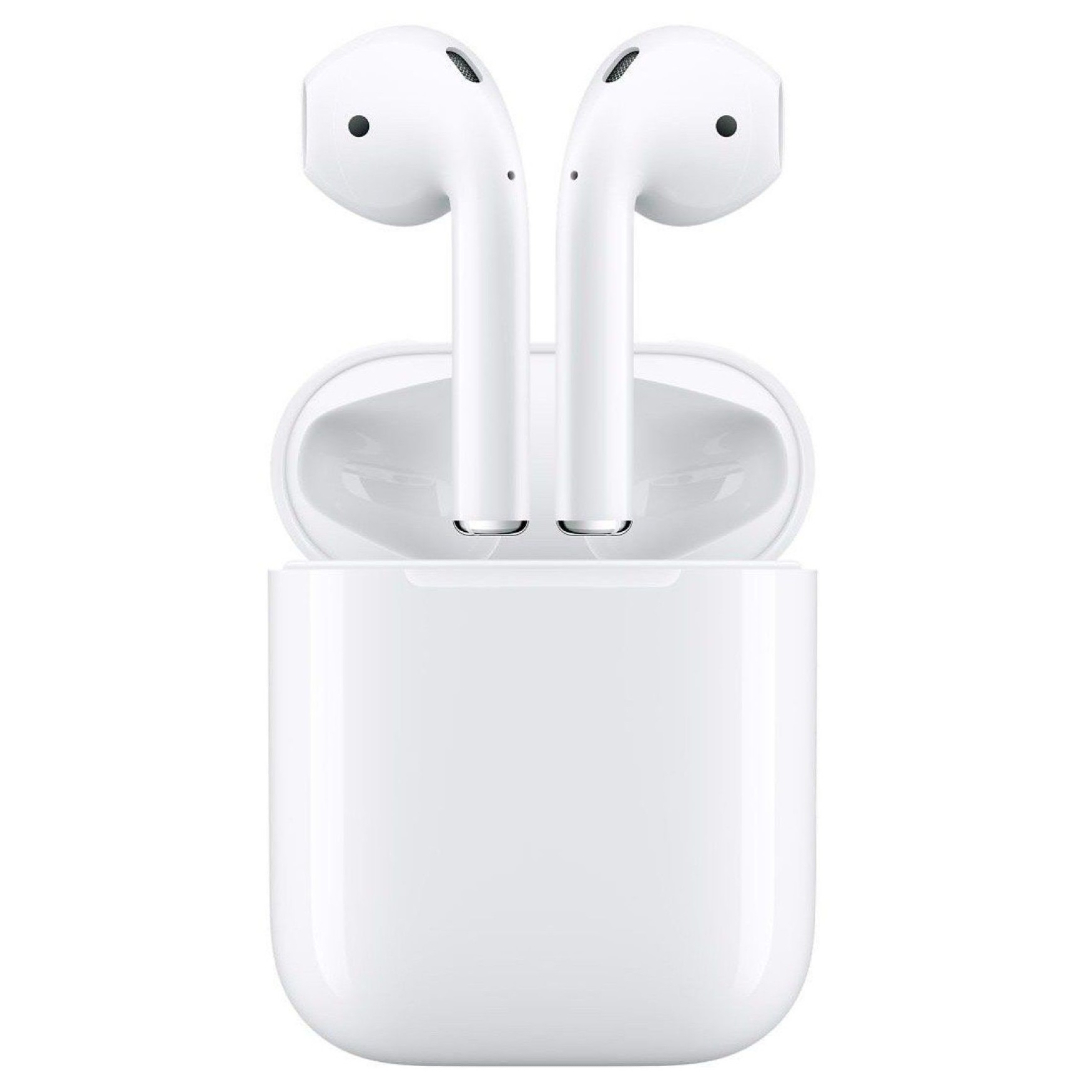
The original
Apple's first-generation AirPods perfected automatic connection to any Apple device you're signed in with your Apple ID. Switching between devices is automagical. Bear in mind that these AirPods can no longer be purchased.
For
- Simple setup built into iOS
- Double-tap for Siri
- 24 hours of battery life with Charging Case
- 15 minutes in case equals 3 hours listening time
- Compatible with wireless Charging Case
Against
- No voice-activated Siri
- Shorter talk time battery
- Only available to buy used
Apple's AirPods are everywhere these days. Just take a walk down the nearest block, and you'll likely spot many people wearing the company's line of premium earbuds and over-ear headphones.
The AirPods 2, released in March 2019, are still available for a great price on Amazon. Granted, if you're interested in a newer model, you could look at AirPods 3, also discounted on Amazon, offering Spatial Audio, an Apple feature that gives you a surround sound experience.
However, if you're looking for a good bargain, there's no harm in looking at the original AirPods, released back in 2016. With this in mind, we've put these and AirPods 2 against one another to highlight what each model offers.
The specs
| Header Cell - Column 0 | AirPods 1 | AirPods 2 |
|---|---|---|
| Battery life (talk) | 2 hours | 3 hours |
| battery life (music) | 5 hours | 5 hours |
| Chipset | W1 | H1 |
| Bluetooth version | 4.2 | 5.0 |
| Siri connection | Double-tap to activate | Voice-activated or double-tap |
| Wireless charging | With additional Wireless Charging Case purchase | With Wireless Charging Case |
| iOS system requirements | iOS 10 or later | iOS 12.2 or later |
| watchOS system requirements | watchOS 3 or later | watchOS 5.2 or later |
| macOS system requirements | macOS High Sierra 10.13.6 or later | macOS Mojave 10.14.4 or later |
| Apple TV support | Yes | Yes |
There's not much difference between the two models here — but there are still some key points worth looking at. For one is the talk time of the two buds. The newer AirPods 2 will give you an extra hour of talking time (when you're using them to call people while connected to your iPhone), so for people who make lots of phone calls, that's an obvious bonus. Music listening battery life remains unchanged, however.
The chip inside the AirPods 2 has also had a bump up to what Apple calls the 'H1'. That means a more stable connection, and voice-activated Siri, something the first-generation AirPods don't have. The Bluetooth version has been upped in the more recent version as well to Bluetooth 5.0.
Modern users don't have to worry too much about the OS requirements of either pair of buds — if you have used any modern Apple device from the last five years, your AirPods will connect without any problems at all.
Should you upgrade from first generation?
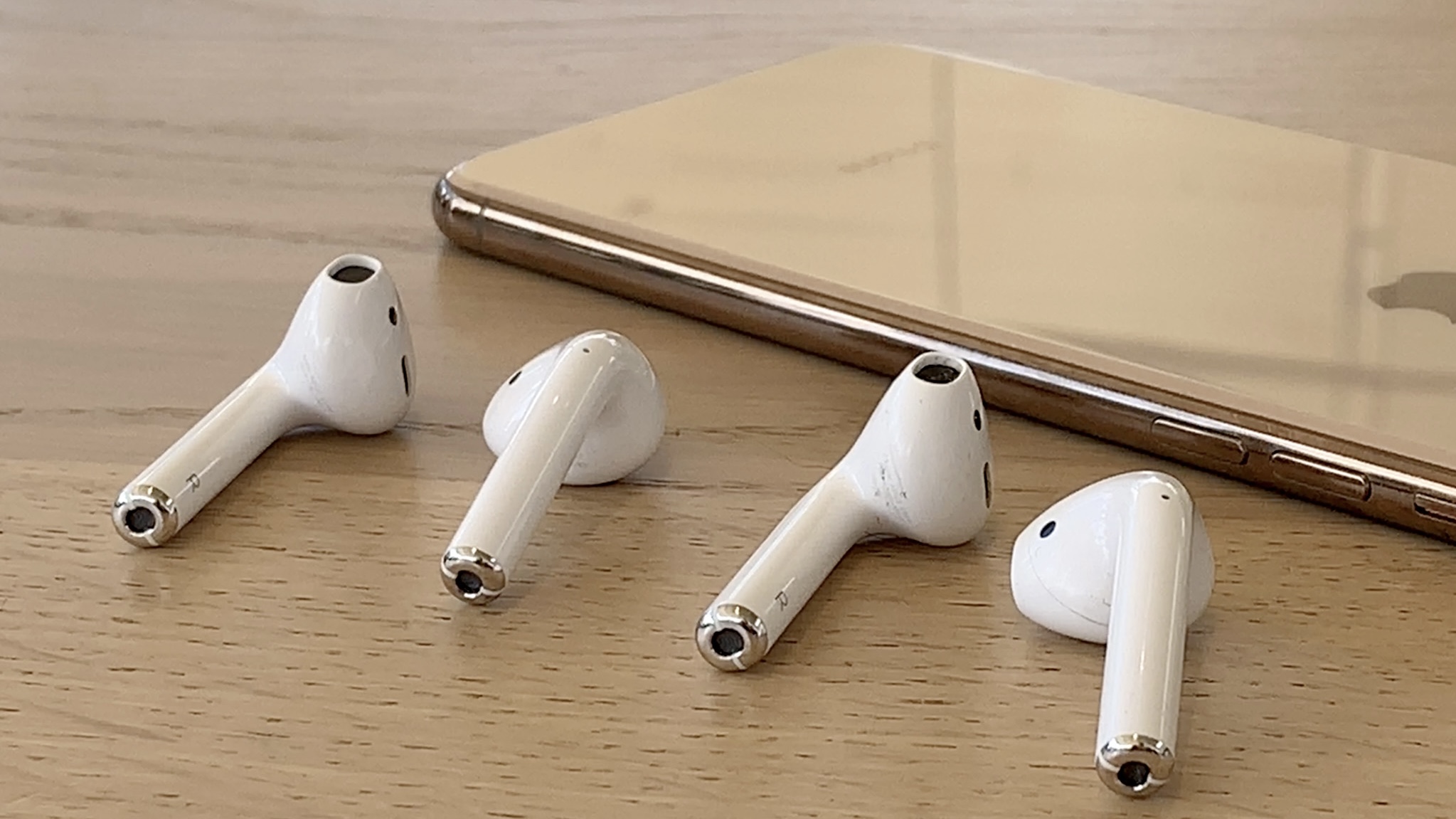
The short answer here is yes. The original AirPods first came out in 2016, so as of right now, they're about eight years old. In that time, there may have been a lot of battery degradation, and your first-gen AirPods may not be lasting as long as they used to when you first got them. I'd honestly be surprised if they last more than an hour or two at this point. Plus, you won't be able to find a new pair of original, first-gen AirPods anywhere these days besides places like eBay, and who knows if those are used or not (gross!).
That's not to mention all the improvements that Apple made to the second generation of the AirPods. There's the H1 chip instead of the W1 which lets the AirPods connect faster and gives you voice-activated Siri. There's more battery life for people that make lots of phone calls too, as well as a better Bluetooth version.
The original AirPods came out in 2016, so as of right now, they're eight years old.
The AirPods remain looking the same, however. Apple opted to not introduce a new design with the AirPods 2, opting to use the same long-stemmed design and white color option. If you found the AirPods first generation comfortable, then the second generation will be as well. If you weren't a fan, then you can always look at the AirPods 3, the even newer version. Those have a new design with differently shaped speaker modules that fit better in more people's ear canals, and new, shorter stems for a more compact look.
The H1 chip vs the W1
The "W" series of chipsets focuses on Bluetooth and Wi-Fi connecting and is used in various wireless headphones, like Beats, as well as the Apple Watch line.
The newer "H" series is Apple's headphones-focused chipset. It's designed to provide faster connectivity, higher-quality audio, and lower latency (in layman’s terms, lag), which benefits certain things like gaming and watching some content on the likes of Apple TV Plus and YouTube.
The H1 chip improves upon the W1 chip in the following ways:
- Up to 50% more talk time
- 2X faster switching between devices
- Faster connection to phone calls
- Stronger connectivity
- 30% lower latency for gaming
- Support for voice-activated Siri
If you're not a fan of how long it takes your first-generation AirPods to connect to your iPhone, then the AirPods 2 are a significant improvement and well worth the upgrade. Those gaming upgrades too make for compelling reading, and will likely make the newer model a whole lot more appealing when compared to your aging AirPods 1.
A better phone call experience
Thanks to the H1 chip, when comparing AirPods 2 vs. AirPods, the second-gen has longer support for talk time than its predecessor. Apple notes up to 50% more, though lists talk time as three hours (the original AirPods has two hours of talk time).
The H1 chip is also up to 1.5 times faster when switching from different audio sources. That means picking up a phone call in the buds is going to be much faster on the second model — so now there's no excuse for missing that phone call from your mom.
The sound and mic quality have been upped on the newer model as well, so you'll be able to hear people better when on a call — and they'll hear you better too.
Siri voice-activation vs. double-tap activation
To activate Siri on the first-generation AirPods, you'd double-tap either the left or right bud. It takes a couple of seconds to activate, but when it does, you can ask Siri for help in a wide variety of ways, including adjusting the volume and controlling playback. Unfortunately, it's also way too easy to accidentally double-tap the earbud when you just meant to adjust positioning. Plus, it's hard to remember which bud you assigned Siri to (if you've assigned the other to something else, like Play/Pause). I ended up disabling double-tap for Siri on my AirPods because I found the experience too annoying.
With AirPods 2, you can activate Siri with your voice. Just like you would with your best iPhone, best Apple Watch, and best HomePod, saying "Hey, Siri" will get the virtual assistant's attention. This is more convenient for several reasons, not the least of which being that you can disable double-tap to activate Siri and still be able to use it.
Though we still don't think this feature is enough to upgrade from the original AirPods, this might be a significant feature for some. For example, people with disabilities could benefit greatly from activating Siri without needing to reach up and double-tap a bud.
Should you buy AirPods 2 with a Wireless Charging Case?
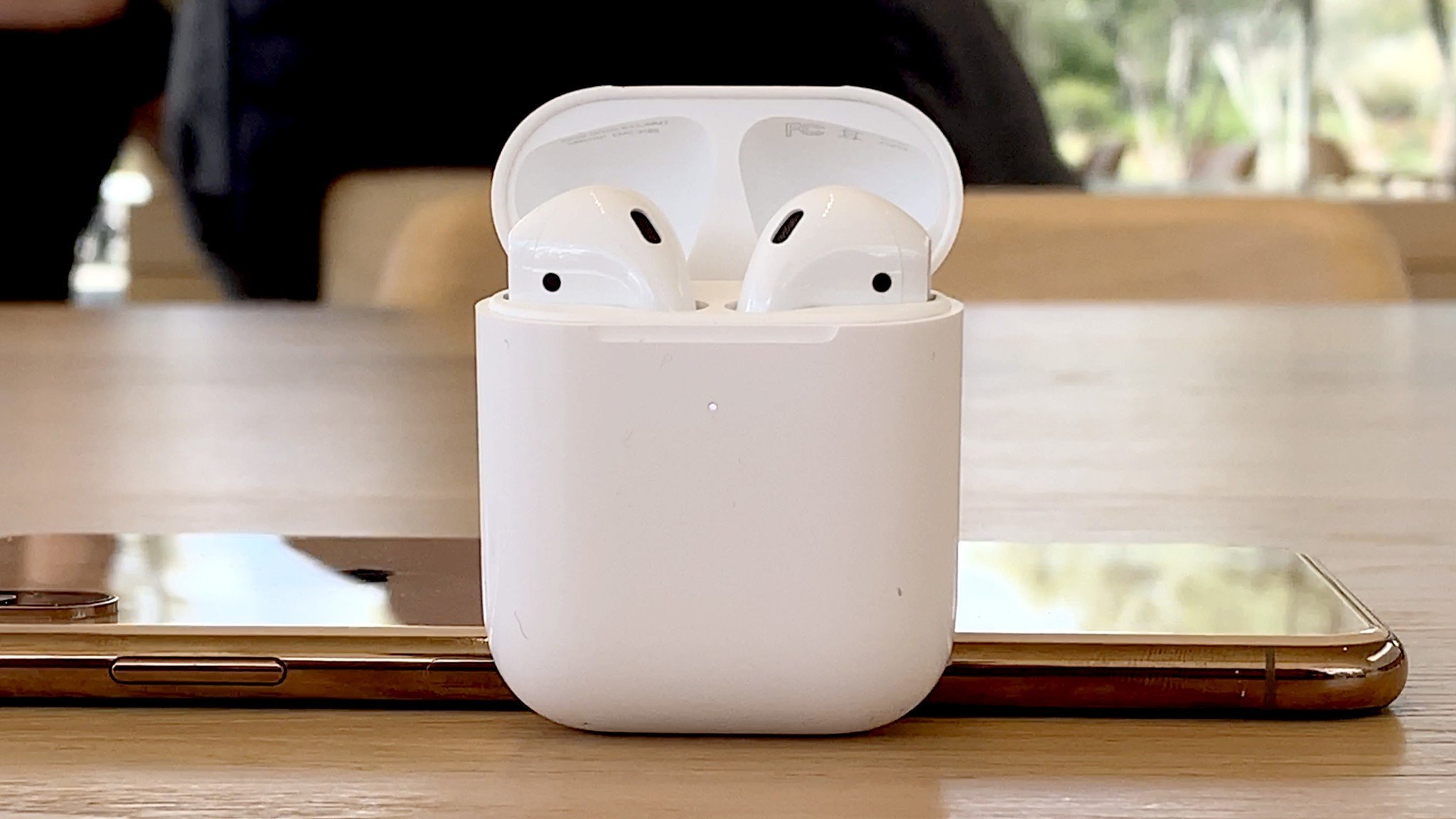
Given that you can't buy the AirPods first generation anymore, you won't be looking for anything other than the second-gen when browsing Amazon. You will, however, ask yourself one other important question — is the wireless charging case worth the extra?
Do you own one of the best wireless charging pads? If you do, then the wireless charging pad is well worth the upgrade. Being able to just place your AirPods down onto a wireless charging puck to juice them up still feels futuristic to this day, and makes charging that bit more convenient.
Being able to just place your AirPods down onto a wireless charging puck to juice them up still feels futuristic to this day.
The first-generation AirPods did not come with a Wireless Charging Case — you had to buy it separately for an extra $79. That, for the most part, was not worth the extra cost. You can still buy the case separately from Apple, and again, if you've already got the AirPods it's not worth paying extra. If you want the wireless charging case, buy the AirPods 2 with the case in the box for an extra $40.
If you want to take it a step further, both the AirPods 3 and AirPods Pro 2 now come with a MagSafe Charging Case instead of just a Wireless Charging Case. This means the case will automatically “snap” into place on any of your MagSafe chargers.
Should you buy just the Wireless Charging Case for your first gen AirPods?
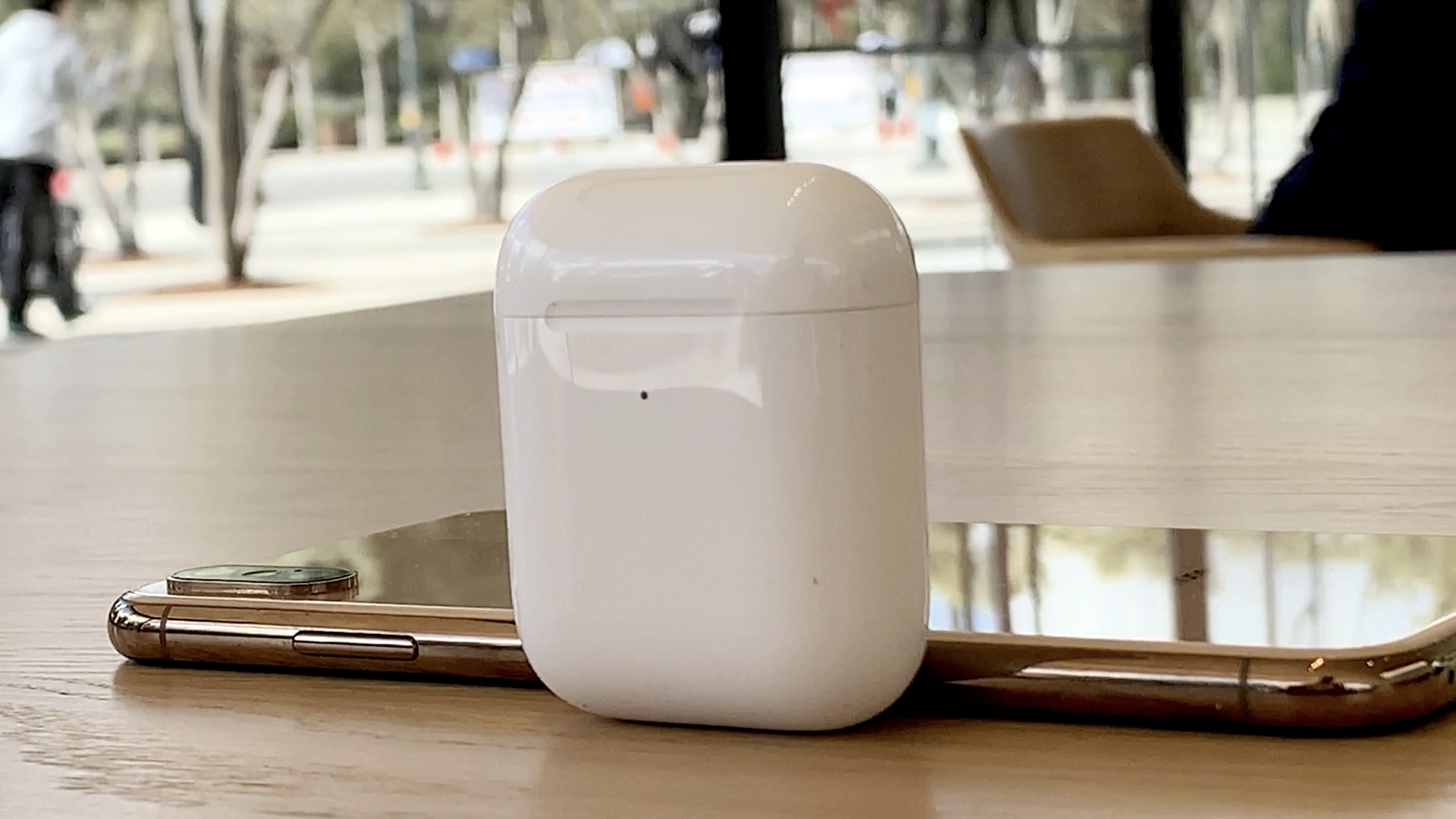
We're going to say 'no'. Your first-generation AirPods could be anywhere from six to eight years old at this point, and they're likely suffering from a range of different aged battery issues. The wireless charging case costs you $79 from Apple — and a new pair of AirPods can be bought from Amazon for $99.

Instabuy
If you're buying AirPods for the first time, the second generation is a no-brainer. It's got better quality and connectivity, voice-activated Siri support, and costs the same as the first-generation AirPods.
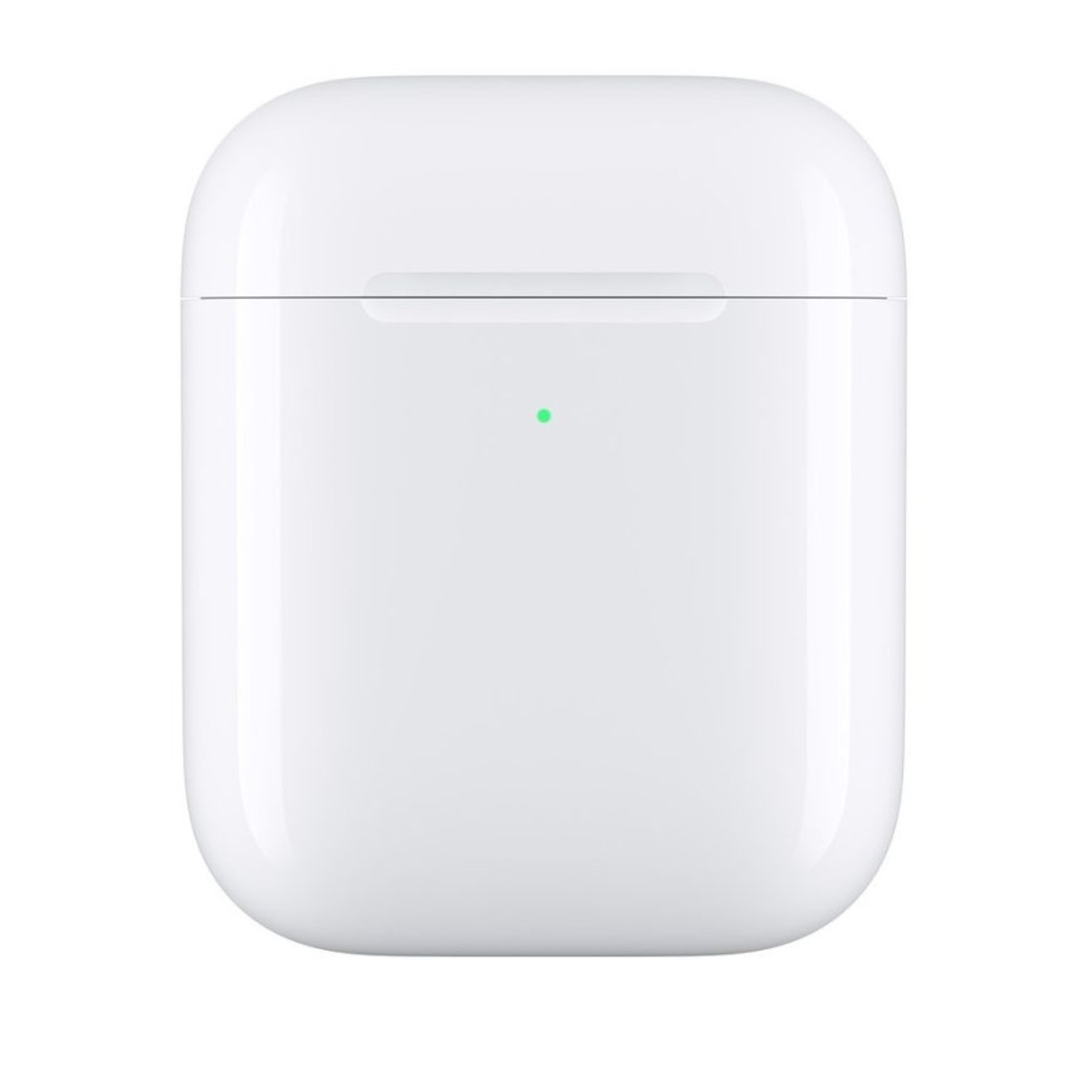
Wireless for all
If you already own AirPods, you can still be part of the cool kids club with the wireless Charging Case. It supports both first and second-generation AirPods.
Master your iPhone in minutes
iMore offers spot-on advice and guidance from our team of experts, with decades of Apple device experience to lean on. Learn more with iMore!

As iMore's Senior Staff writer, Tammy uses her background in audio and Masters in screenwriting to pen engaging product reviews and informative buying guides. The resident audiophile (or audio weirdo), she's got an eye for detail and a love of top-quality sound. Apple is her bread and butter, with attention on HomeKit and Apple iPhone and Mac hardware. You won't find her far away from a keyboard even outside of working at iMore – in her spare time, she spends her free time writing feature-length and TV screenplays. Also known to enjoy driving digital cars around virtual circuits, to varying degrees of success. Just don't ask her about AirPods Max - you probably won't like her answer.
